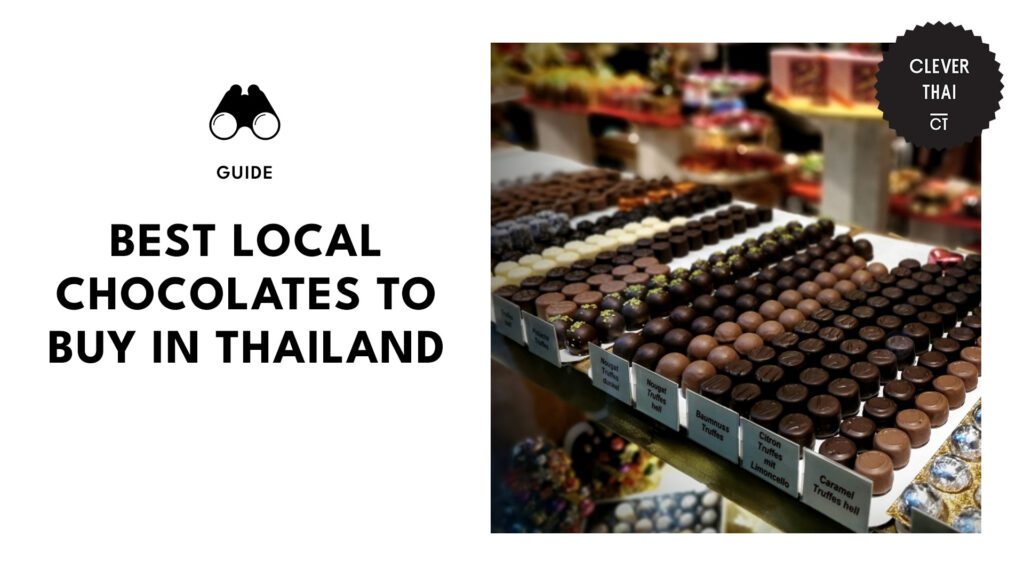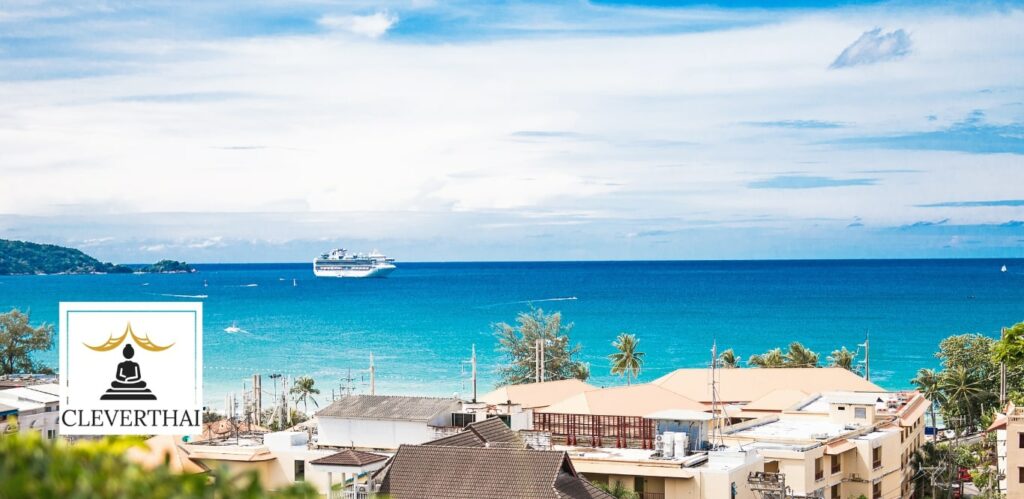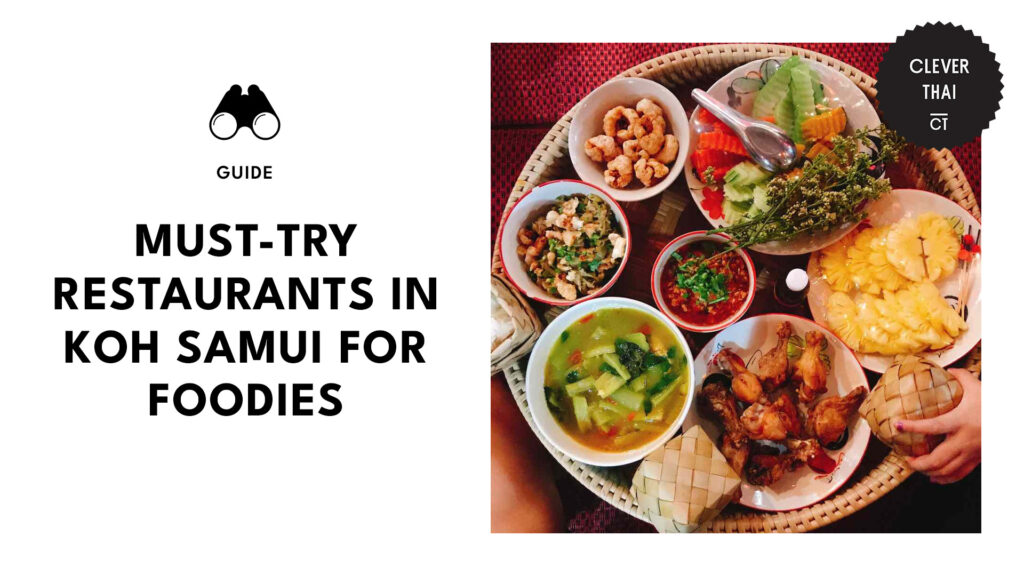Categories > Guides and Tips
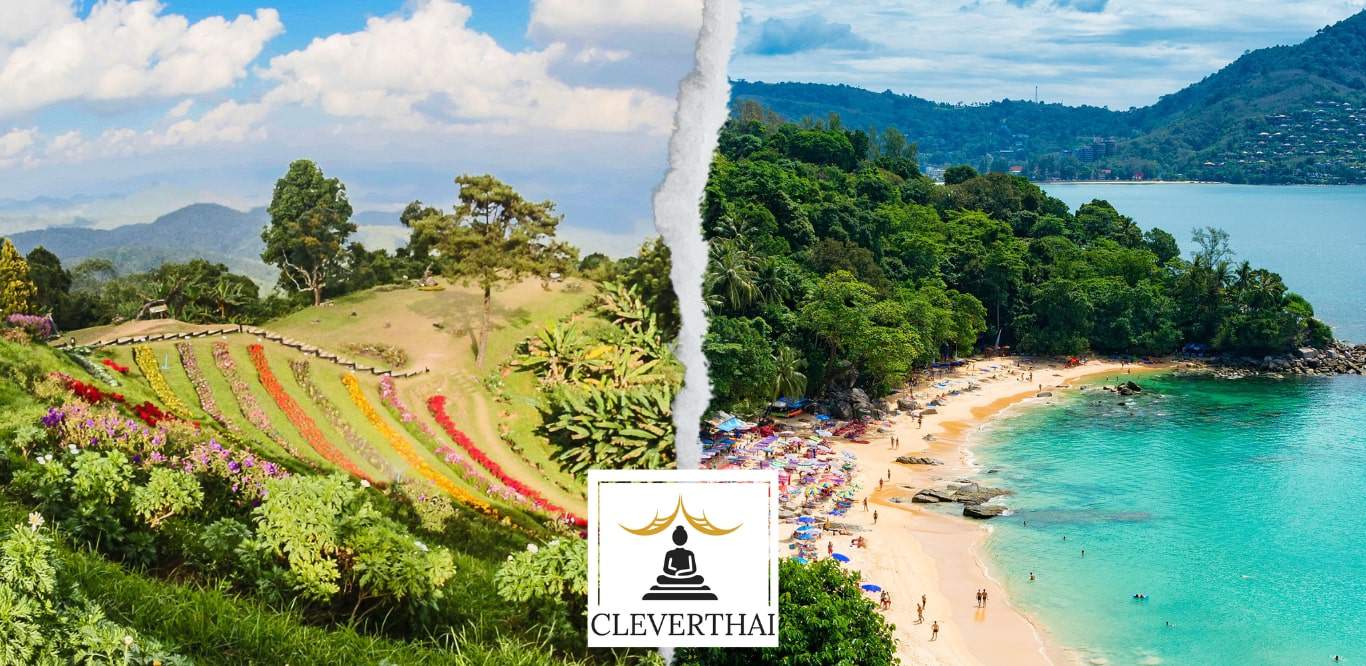
Where to travel next, Northern and Southern Thailand?
- Landscape of Northern vs Southern Thailand
- Weather in Northern vs Southern Thailand
- Language in Northern vs Southern Thailand
- Travel Costs in Northern vs Southern Thailand
- Activities to Do in Northern vs Southern Thailand
- Nightlife in Northern vs Southern Thailand
- Tourist-Friendliness of Northern vs Southern Thailand
- Transportation in Northern vs Southern Thailand
- Cuisine in Northern vs Southern Thailand
- Northern vs Southern Thailand: How They Stack Up
Hey, wanderers! Got that wanderlust itching to explore Thailand? But which area should you explore first, Northern or Southern Thailand?
Head up North for a dose of history, tradition, and peaceful serenity. Meanwhile, escape to the South, where sun-kissed beaches and island fun await!
Tough choice, right? Don’t worry; we’ve got your back! Join us as we unveil the charms of both regions, helping you make that tough choice for your next big adventure!
Landscape of Northern vs Southern Thailand
Northern Thailand showcases lush mountains and serene countryside, ideal for nature lovers. Meanwhile, Southern Thailand boasts pristine beaches and picturesque islands, perfect for beach enthusiasts.

The landscape of Northern Thailand is a stunning blend of lush mountains, verdant valleys, and picturesque countryside. This region is renowned for its mist-shrouded hills, terraced rice paddies, and enchanting forests.
Northern Thailand’s charming villages, such as Pai and Chiang Rai, offer a serene escape from the bustling cities. Adventurers can explore national parks like Doi Inthanon and Doi Suthep, which boast breathtaking waterfalls and diverse wildlife.
The slower pace of life and beautiful scenery make Northern Thailand a paradise for nature lovers and those seeking tranquillity.

Meanwhile, the landscape of Southern Thailand is a mesmerising tapestry of crystal-clear waters, white sandy beaches, and lush tropical islands.
This region is famed for its idyllic coastal scenery and postcard-perfect islands like Phuket, Koh Samui, and Koh Phi Phi.
Stunning limestone cliffs and emerald waters create a dramatic backdrop in places like Railay Beach and Phang Nga Bay. Adventure seekers can explore underwater wonders through snorkelling and diving in the Andaman Sea.
Southern Thailand’s unparalleled beauty and laid-back beach vibes make it a haven for beach enthusiasts and sun-seekers.
Weather in Northern vs Southern Thailand

Northern Thailand offers a cooler climate, especially during the cool season (Nov-Feb). Southern Thailand, on the other hand, experiences a tropical climate, with drier weather during its high season (Nov-April).
Northern Thailand’s weather is characterised by three distinct seasons. The cool season (November to February) offers pleasant temperatures and clear skies, making it the most popular time to visit.
The hot season (March to June) can be scorching, while the rainy season (July to October) brings occasional downpours and lush greenery.
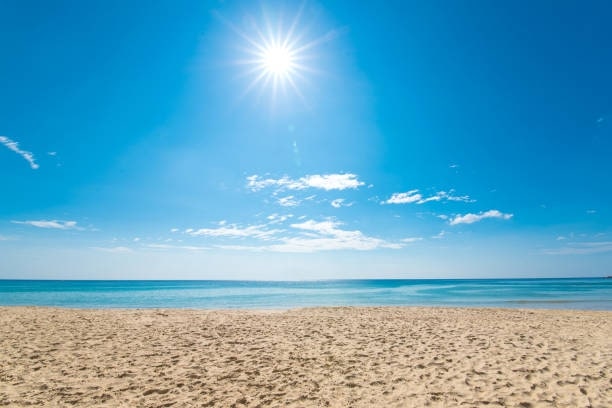
On the other hand, the weather in Southern Thailand is influenced by two primary monsoon seasons. The dry season (November to April) is the most favourable for tourists, with sunny and dry weather.
The hot season (April to June) can be sweltering. The wet season (May to October) brings heavy rainfall, but also less crowded beaches and lower hotel rates.
The east and west coasts have different monsoon patterns, so it’s possible to find sunny destinations throughout the year.
Language in Northern vs Southern Thailand
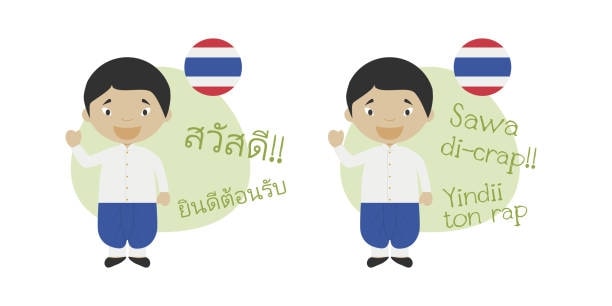
Both regions primarily speak Thai. In tourist areas, English is more prevalent in Southern Thailand, while learning basic Thai phrases can enhance interactions in the North.
In both regions, the primary language spoken is Thai, similar to the rest of the country. However, you may find that the regional dialect and accents differ from the standard Thai spoken in Bangkok and other central regions.
While English is commonly used in major tourist areas, especially in hotels and popular attractions, knowing a few basic Thai phrases can be helpful when venturing into more remote or rural areas.
Travel Costs in Northern vs Southern Thailand
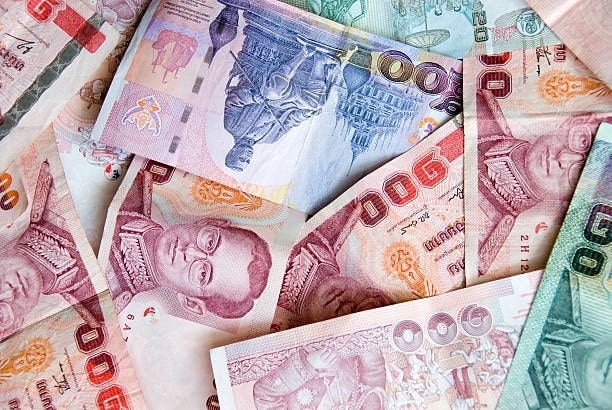
Northern Thailand tends to be more budget-friendly with affordable accommodations and food. Southern Thailand can be pricier in tourist-heavy areas.
Travel costs in Northern Thailand are generally more budget-friendly compared to the Southern region. Accommodations, food, and transportation options tend to be more economical, making it an attractive choice for budget travelers.
Local markets and street vendors offer affordable and delicious Thai dishes, allowing you to savour the authentic flavours without breaking the bank.
Southern Thailand, on the other hand, particularly the popular tourist destinations and islands, can be slightly more expensive compared to the North.
Accommodations and dining options in places like Phuket, Koh Samui, and Krabi can be pricier due to higher demand. However, there are still affordable accommodations and local eateries available, especially in less touristy areas.
Exploring off-the-beaten-path destinations in the South can help you keep travel costs more manageable.
Activities to Do in Northern vs Southern Thailand
Northern Thailand offers cultural exploration and trekking. Conversely, Southern Thailand boasts water activities, island hopping, and vibrant beach scenes.
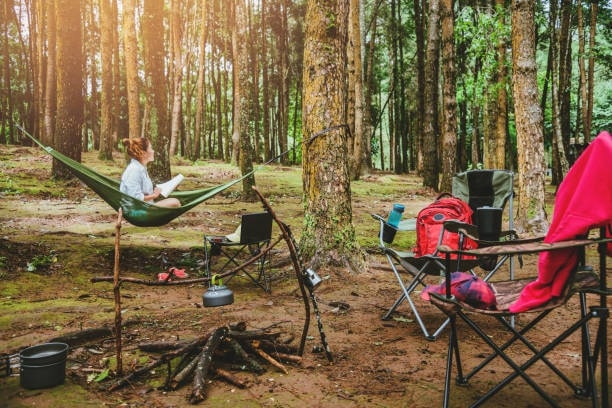
Northern Thailand offers a range of unique activities that highlight its cultural and natural wonders. Explore ancient temples and historical sites in cities like Chiang Mai and Chiang Rai.
You can trek through lush jungles and visit hill tribe villages to immerse yourself in traditional ways of life. Plus, don’t forget to visit the enchanting beauty of waterfalls and national parks, such as Doi Inthanon and Doi Suthep.
Here, you can also experience thrilling outdoor adventures like white-water rafting, zip-lining, and elephant sanctuaries.
You can also attend local festivals and immerse yourself in the warm hospitality and serene countryside that Northern Thailand has to offer.

Meanwhile, Southern Thailand is a paradise for beach lovers and water enthusiasts. You can relax on pristine beaches like Railay, Phi Phi, and Koh Lanta, or go island hopping to explore the picturesque islands of the Andaman Sea.
You can also snorkel or dive to discover vibrant underwater life and coral reefs. Take boat tours to explore stunning limestone cliffs and sea caves in places like Phang Nga Bay and James Bond Island.
Plus, you can engage in watersports such as kayaking, paddleboarding, and jet-skiing. The best part is you also get to explore vibrant markets and try delicious seafood dishes along the coast.
Southern Thailand offers an array of beach-centric activities and water adventures for an unforgettable tropical escape.
Nightlife in Northern vs Southern Thailand
Northern Thailand has a more relaxed nightlife with riverside bars and live music. Meanwhile, Southern Thailand is famous for its lively beach parties and vibrant nightlife.
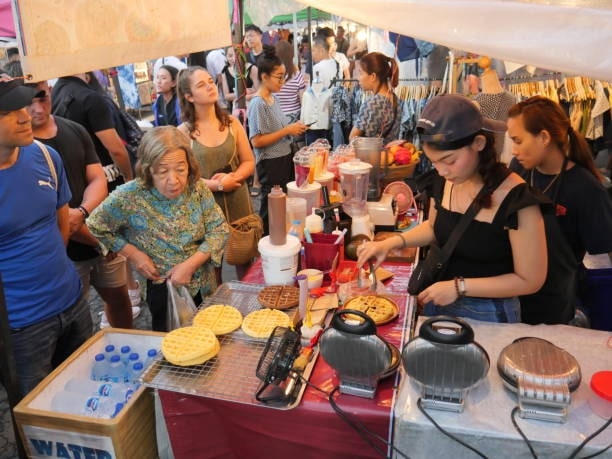
The nightlife in Northern Thailand is more laid-back and relaxed compared to the bustling party scenes of the South.
Cities like Chiang Mai offer a mix of entertainment, with night markets, live music venues, and bars catering to both locals and tourists.
Plus, the atmosphere is vibrant yet chill, making it perfect for those seeking a more relaxed nightlife experience.
You can enjoy a drink at a riverside bar or dance to live music in cosy pubs, where you can socialise with fellow travellers and immerse yourself in the city’s friendly ambiance.

Conversely, Southern Thailand’s nightlife is renowned for its vibrant beach parties and lively atmosphere.
Destinations like Phuket, Koh Phi Phi, and Koh Samui are famous for their bustling nightlife scenes, with beach clubs, rooftop bars, and neon-lit nightclubs that keep the party going until the early hours.
Fire shows and beachside bars add to the festive vibe. If you’re in the mood for dancing, beach parties, and mingling with fellow travellers from all around the world, the South offers an electric nightlife experience.
Tourist-Friendliness of Northern vs Southern Thailand
Both regions are tourist-friendly, with friendly locals. However, Southern Thailand offers more tourist infrastructure, and English is more prevalent in popular tourist hubs.

Northern Thailand is known for its warm hospitality and welcoming atmosphere, making it a tourist-friendly destination. Locals are friendly and approachable, making travelers feel at ease and appreciated.
In major tourist areas like Chiang Mai and Chiang Rai, English is widely spoken, making communication more accessible for international visitors.
The well-established tourism infrastructure in the North ensures convenience in exploring attractions and organising tours.
Northern Thailand’s serene countryside and cultural experiences create a delightful and immersive journey for travellers.

Similarly, Southern Thailand is also considered tourist-friendly, offering a mix of vibrant attractions and island hospitality.
In popular tourist hubs like Phuket, Krabi, and Koh Samui, locals are accustomed to interacting with travellers and are generally accommodating and helpful.
While English may be less prevalent in some areas compared to the North, tourist establishments and major attractions often have English-speaking staff.
The extensive range of transportation options, tour operators, and activities in the South makes exploring the region convenient and enjoyable, ensuring a pleasant and unforgettable experience for tourists.
Transportation in Northern vs Southern Thailand
Southern Thailand has a more extensive transportation network, including island hopping options. Northern Thailand, on the other side, offers options like tuk-tuks and motorbike rentals.
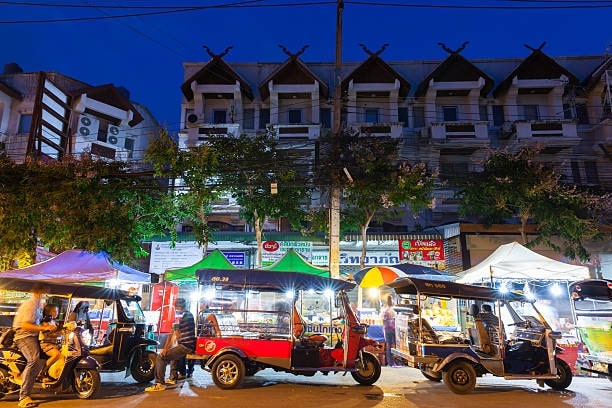
Transportation options in Northern Thailand are readily available, but they might be more limited compared to the well-connected Southern region.
In cities like Chiang Mai and Chiang Rai, you can find tuk-tuks, songthaews (shared pick-up trucks), and taxis for local travel. Renting a motorbike or bicycle is also a popular way to explore the countryside and nearby attractions.
Public buses and minivans connect major cities and towns, but train services are limited. If you’re traveling longer distances, domestic flights are available via various airports, like Chiang Mai International Airport, Sukhhothai Airport, Phitsanulok Airport, and Phetchabun Airport.

On the other hand, Southern Thailand offers a more extensive and diverse transportation network, catering to the region’s popularity among tourists.
Major tourist destinations like Phuket and Krabi have well-developed local transport options, including tuk-tuks, taxis, and songthaews. Ferries and speedboats connect various islands, allowing easy island hopping.
Domestic flights operate from major cities like Phuket and Surat Thani, making it convenient to access the region from other parts of Thailand.
The ease of transportation in the South makes it convenient for travellers to explore the beautiful coastal landscapes and island gems of Southern Thailand.
Cuisine in Northern vs Southern Thailand
Northern Thailand features unique flavours influenced by neighbouring countries. On the other hand, Southern Thailand boasts bold and spicy dishes with rich coconut milk curries.
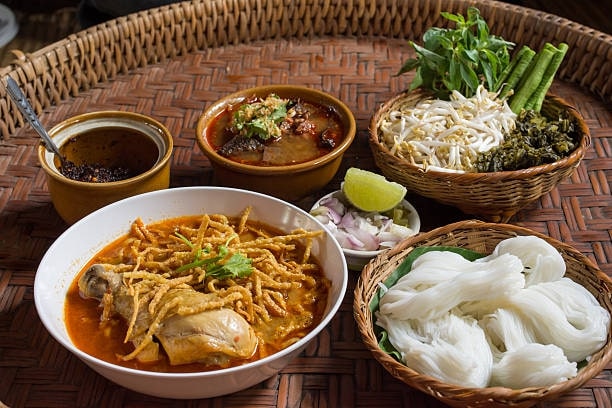
The cuisine of Northern Thailand offers a delightful array of flavours that reflect the region’s cultural diversity. Influenced by neighbouring countries like Myanmar and Laos, Northern Thai dishes showcase a unique blend of herbs, spices, and ingredients.
Khao soi, a popular dish, features a creamy curry broth with egg noodles, often topped with crispy noodles and served with pickled vegetables. Sai oua, a flavorful Northern Thai sausage, is another must-try specialty.
The region is also known for its use of aromatic herbs and vegetables, creating dishes like gaeng hang lay (pork curry) and nam prik ong (tomato and pork chilli dip).
Exploring the food markets and local eateries in cities like Chiang Mai will reward your taste buds with a captivating culinary journey.
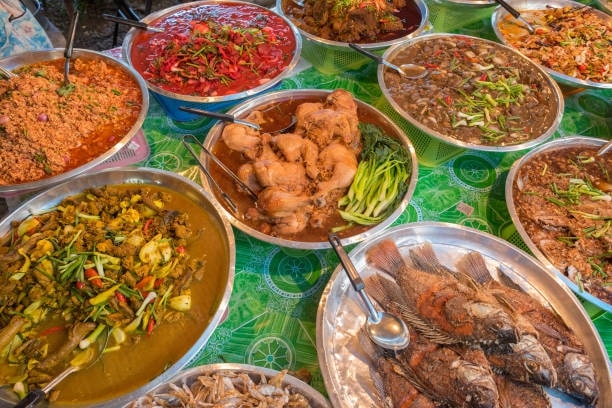
On the flip side, Southern Thai cuisine is renowned for its bold and spicy flavours, reflecting the region’s proximity to the sea and the influence of Malay and Indian cuisines.
Rich coconut milk curries, such as gaeng massaman and gaeng panang, are staples in Southern Thai kitchens.
Seafood also takes centre stage, with fresh catches transformed into tantalising dishes like pla rad prik (fried fish with chili sauce) and tom yam talay (spicy seafood soup).
The region is famous for its fiery chilli pastes and herb-infused dishes that leave a memorable kick on the palate. Don’t forget to indulge in Southern-style grilled dishes and refreshing salads, such as yam talay (seafood salad), while enjoying the beachside ambiance.
Exploring the diverse and spicy flavours of Southern Thai cuisine is an essential part of any culinary adventure in the region.
Northern vs Southern Thailand: How They Stack Up
The decision between Northern and Southern Thailand depends on individual interests. Choose Northern Thailand for a serene cultural escape and cooler weather.
Meanwhile, opt for Southern Thailand if you crave stunning beaches, water adventures, and vibrant nightlife.

In Thailand, the Northern and Southern regions offer travellers distinct and captivating experiences that showcase the country’s incredible diversity.
Northern Thailand boasts a landscape of lush mountains, terraced rice paddies, and serene countryside, making it an ideal destination for nature enthusiasts seeking tranquillity and cultural exploration.
The cuisine of the North features a unique blend of flavours influenced by neighbouring countries, presenting travellers with delightful dishes like Khao Soi and Sai Oua.
Rich in cultural heritage, the region’s ancient temples and warm hospitality create an immersive and authentic travel experience.
Northern Thailand is also known for its tourist-friendliness, with friendly locals, English-speaking areas, and a well-established tourism infrastructure that simplifies exploration.
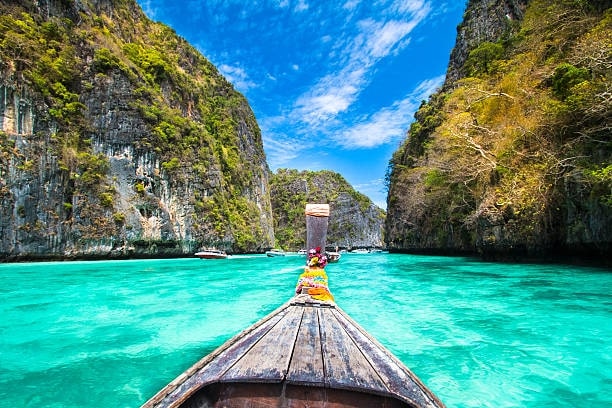
On the other hand, Southern Thailand presents a vibrant coastal vibe with pristine beaches, crystal-clear waters, and picturesque islands, attracting beach lovers and water enthusiasts alike.
South Thai’s cuisine is characterised by bold and spicy flavours, with rich coconut milk curries and an array of delectable seafood specialties, such as Pla Rad Prik and Tom Yam Talay.
The region’s cultural influences from Malay and Indian cuisines add to its diverse culinary delights.
In terms of tourist-friendliness, Southern Thailand is equally welcoming, with friendly locals, tourist-friendly destinations, and diverse transportation options that make exploring the beautiful coastal landscapes and island gems a breeze.
Whether you choose the tranquillity of Northern Thailand or the vibrant beach scenes of the South, both regions offer unforgettable experiences that showcase the enchanting charm of Thailand as a whole.
In order to help you decide and have an answer to this thrilling dilemma for you, here’s a recap for all the factors we’ve discussed. Let’s dive into the delightful choices of Northern and Southern Thailand and start planning your dream adventure!
| Factor | Northern Thailand | Southern Thailand | Better Destination | Notes |
| Landscape | Lush mountains, serene countryside | Pristine beaches, picturesque islands | Southern Thailand | Stunning beaches and diverse coastal landscapes. |
| Cuisine | Unique flavours, cultural influences | Bold and spicy flavours, seafood specialties | Tie | Both regions offer exceptional and diverse cuisines. |
| Culture | Rich cultural heritage, ancient temples | Vibrant coastal vibe, cultural influences | Tie | Both regions have unique cultural experiences to offer. |
| Tourist-Friendliness | Friendly locals, English-speaking areas | Welcoming locals, tourist-friendly destinations | Tie | Both regions are known for their warm hospitality. |
| Weather | Cooler weather, misty hills | Hotter weather, tropical climate | Tie | Choice is based on traveller’s preferences. |
| Activities | Cultural exploration, nature adventures | Beach activities, water sports | Tie | Choose based on preferred activities. |
| Nightlife | Relaxed and chill nightlife | Vibrant beach parties, bustling nightlife | Southern Thailand | Lively beach scenes cater to nightlife enthusiasts. |
| Transportation | Limited options, rural travel | Extensive network, island hopping | Southern Thailand | Better transportation options for exploring the region. |
| Travel Costs | More budget-friendly options | Slightly more expensive in tourist areas | Northern Thailand | Cost-conscious travelers may find the North more appealing. |
| Best Time to Visit | Pleasant cool season | Dry season with less rainfall | Tie | Choose based on preferred weather and activities. |
Ultimately, the decision comes down to what type of experience, weather, and activities each traveller prefers, as both regions offer their own remarkable charm and attractions.
